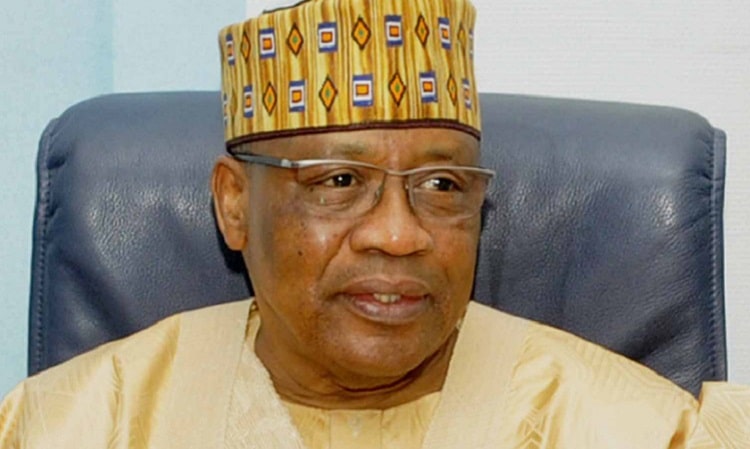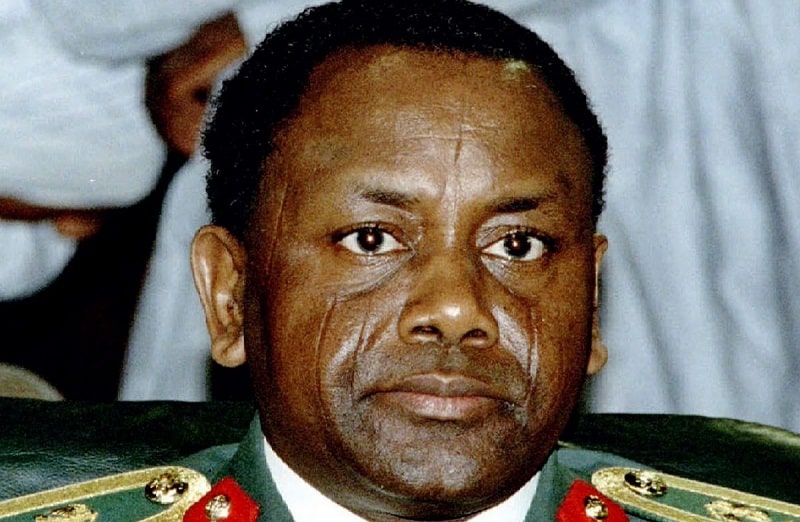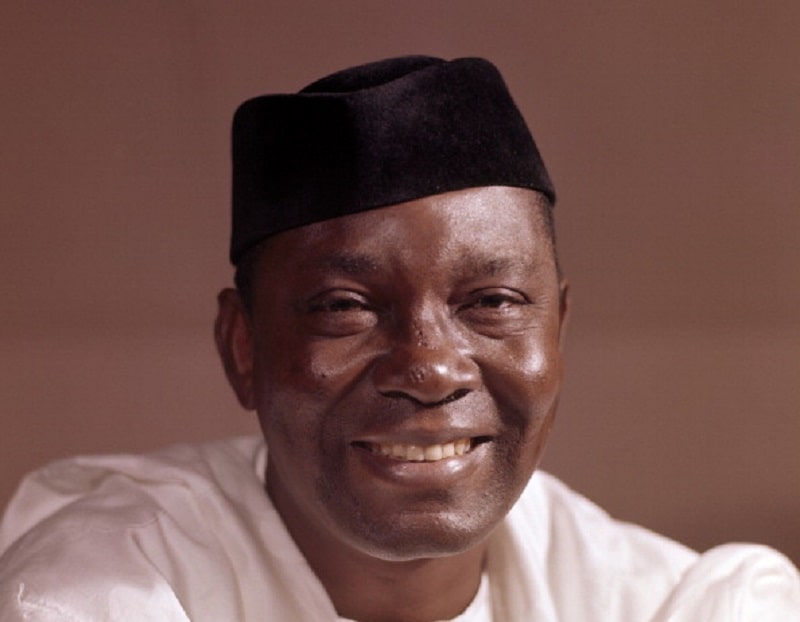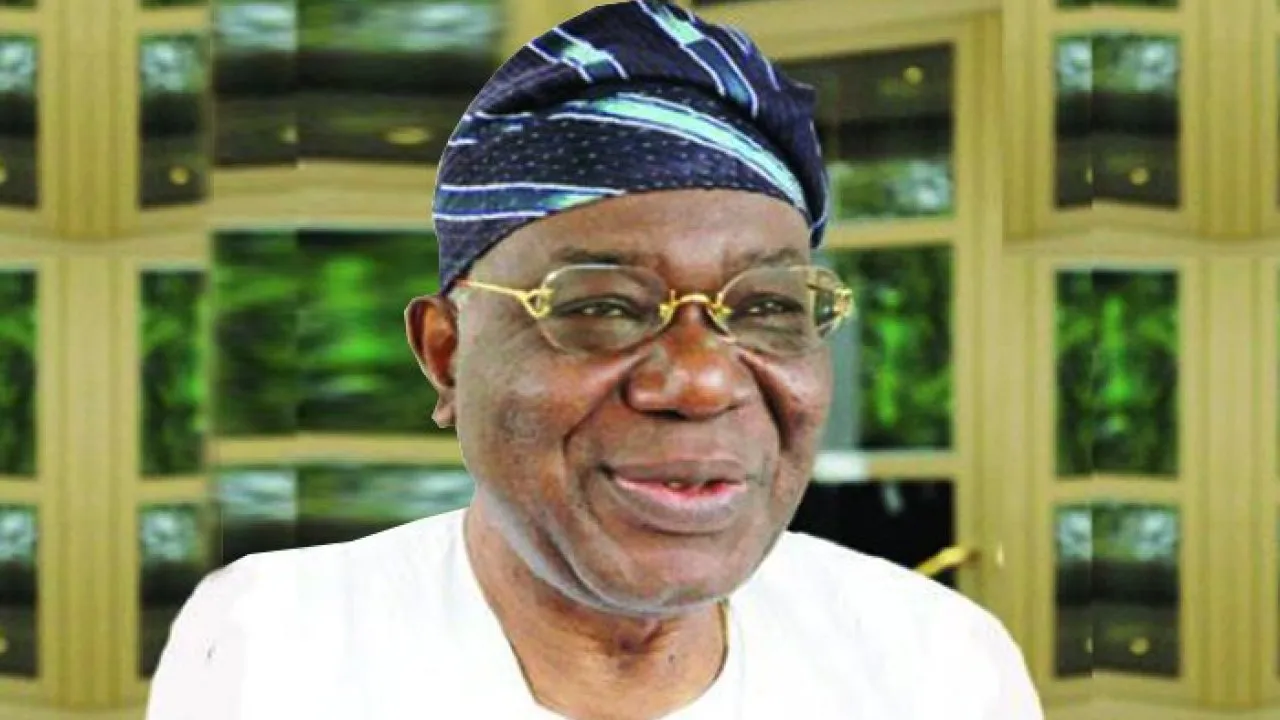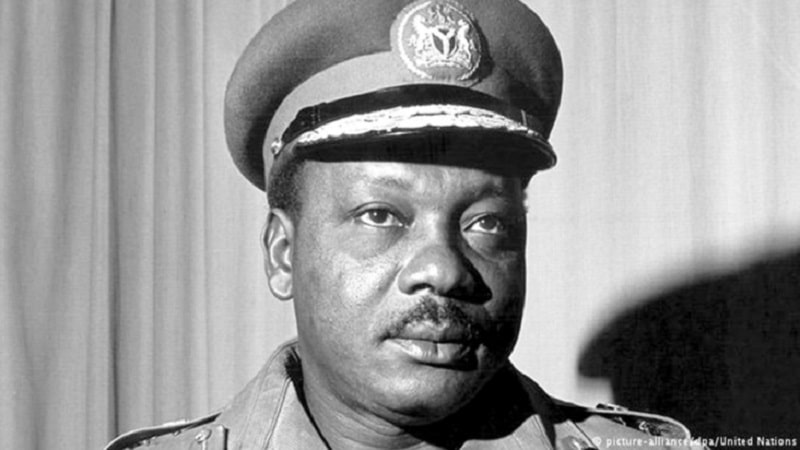President Buhari Muhammadu (Former President)
President Buhari Muhammadu - 15th President of Nigeria
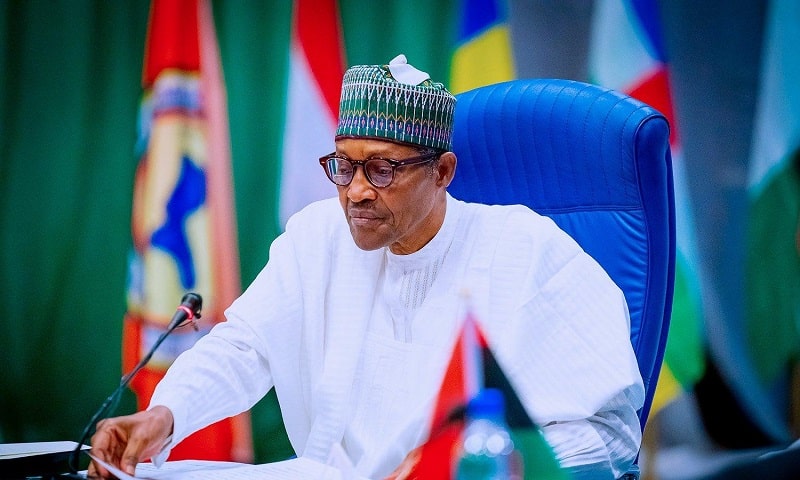
President Buhari Muhammadu is a retired Major General in the Nigerian Army who became 15th President of Nigeria in May 2015. He was re-elected in 2019 and left office on May 29, 2023.
Major General Muhammadu Buhari was also the military ruler of Nigeria from 1983 to 1985, following a coup that overthrew President Shehu Shagari’s civilian government.
| List | President’s Information |
|---|---|
| Name | Muhammadu Buhari |
| Date of Birth | December 17, 1942 |
| Age | 80 years (as of 2023) |
| Ancestral Home | Daura, Katsina State, Nigeria |
| Native Language | Hausa |
| School Attended | Nigerian Military Training College, Mons Officer Cadet School (Aldershot, UK) |
| Career & Occupation | Army General, Politician |
| Military Rank | General |
| Height | Approximately 1.85 meters |
| Known As | Sai Baba |
| Citizenship | Nigerian |
| Residence | Abuja, Nigeria |
| Religion | Islam |
| Wife’s Name | Aisha Buhari |
| Children’s Name | Zahra, Yusuf, Halimat, and others |
| Head of State | 1983 – 1985 (2 years) |
| Assumed Presidential Office | May 29, 2015 |
| Left Presidential Office | May 2023 (8 years in office) |
| Political Party | All Progressives Congress (APC) |
President Buhari Early Life and Military Career
Buhari was born on December 17, 1942, in Daura, Katsina State, Nigeria. He attended primary and secondary school in Katsina before joining the Nigerian Army in 1962. He received his military training at the Nigerian Defense Academy (NDA) and in the UK, India, and the US. He rose to the rank of Major General and served as the Military Governor of the North-Eastern State from 1975 to 1978.
Major General Muhammadu Buhari (1983 – 1985)
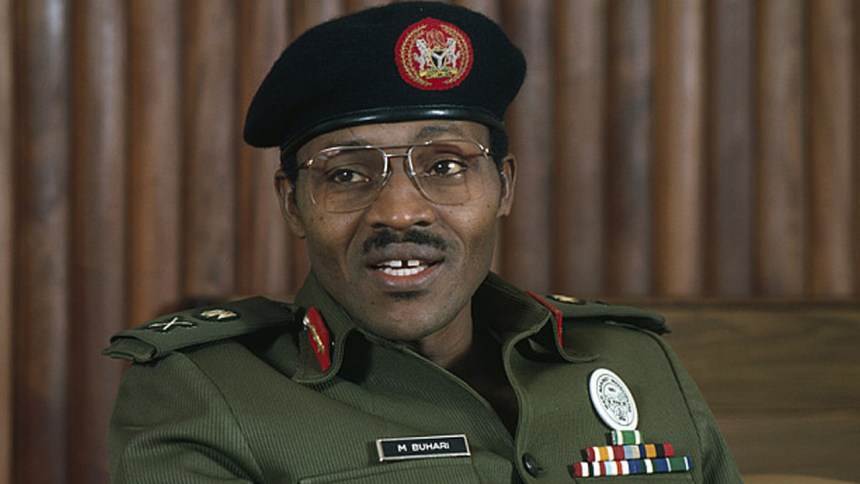
President Buhari Rise to Power
In December 1983, Buhari led a military coup that overthrew the civilian government of President Shehu Shagari. Buhari was appointed Head of State and Commander-in-Chief of the Armed Forces, with a mandate to restore order and stability to the country.
President Buhar Policies and Achievements
During his time in the office, he had a strict military rule and a crackdown on corruption. He launched a campaign against indiscipline and corruption, which included the arrest and imprisonment of prominent politicians and businessmen. His government also implemented several policies aimed at reviving Nigeria’s struggling economy, including currency devaluation and austerity measures.
Buhari’s government also pursued an active foreign policy, seeking to promote Nigeria’s influence on the global stage. He worked to strengthen ties with African countries and played a leading role in the formation of the Economic Community of West African States (ECOWAS).
In August 1985, Buhari was overthrown in a military coup led by General Ibrahim Babangida. He was subsequently detained for several years before being released in 1988.
President Muhammadu Buhari (2015 – 2023)
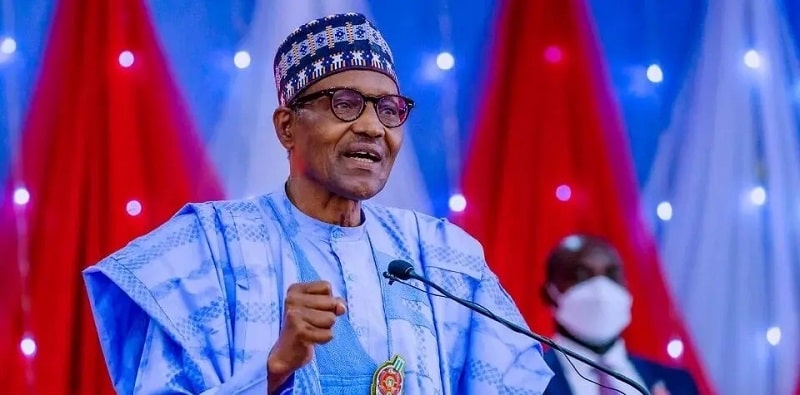
After his overthrow in 1985, Buhari went into exile in the UK, where he remained until 1998. He later became involved in politics and ran for the presidency in 2003, 2007, and 2011, but was unsuccessful on all three occasions.
He was re-elected in 2019 and is currently serving his second and final term as President, which ends on May 29, 2023.
Buhari was elected President in March 2015, defeating incumbent President Goodluck Jonathan in a hotly contested election. His campaign was based on the promise of tackling corruption, improving security, and revitalizing the economy. Since taking office, Buhari has launched several initiatives aimed at fulfilling these promises, including the Treasury Single Account (TSA), the Presidential Initiative on Continuous Audit (PICA), and the Whistleblower Policy.
Buhari has also made efforts to improve Nigeria’s security situation, which has been plagued by terrorism, insurgency, and separatist movements. He has launched military campaigns against Boko Haram terrorists in the north-east, and against bandits and kidnappers in the north-west and north-central regions of Nigeria.
Buhari’s administration made efforts to revitalize Nigeria’s economy, which struggled since the global drop in oil prices in 2014. He launched several initiatives aimed at diversifying the economy away from oil, including the Anchor Borrowers’ Program (ABP) and the Presidential Fertilizer Initiative (PFI).
Additional Facts About President Muhammadu Buhari
- Buhari rose through the ranks in the Nigerian Army, eventually becoming a Major General.
- He played a significant role in the Nigerian Civil War (1967-1970) on the side of the federal forces.
- Buhari served as Nigeria’s Minister of Petroleum and Natural Resources from 1976 to 1978 under General Olusegun Obasanjo.
- He oversaw the creation of the NNPC and served as its first chairman.
- Buhari was ousted in a coup led by General Ibrahim Babangida in August 1985.
- After the coup, Buhari was detained for nearly three years.
- Buhari ran for president in democratic elections in 2003, 2007, and 2011 but was unsuccessful in all three attempts.
- He was elected as the President of Nigeria in 2015 by defeating incumbent Goodluck Jonathan, marking the first time in Nigeria’s history that an incumbent president was defeated in a general election.
- Buhari was re-elected in 2019 after defeating Atiku Abubakar.
- Buhari’s administration launched social investment programs such as N-Power, TraderMoni, and the School Feeding Program.
- His government signed the Petroleum Industry Act into law in 2021, aiming to reform the oil and gas sector.
Yemi Osinbajo – Formal Vice President of Nigeria (2015 – 2023)
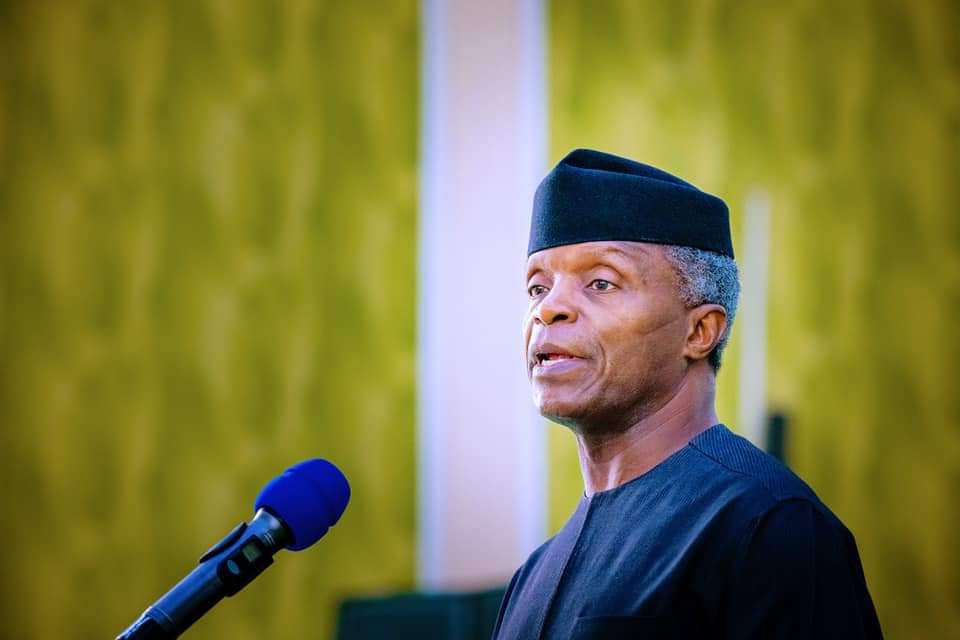
Yemi Osinbajo, a prominent Nigerian political figure and he was born on March 8, 1957, in Lagos State, Nigeria. He hails from Ogun State and is of the Yoruba ethnic group. Osinbajo grew up in Lagos in a middle-class family, where he received his early education. He is a Nigerian legal expert, scholar, and political figure, he held the position of Nigeria’s 14th vice president from 2015 to 2023. Affiliated with the All Progressives Congress (APC), he previously worked as the Attorney General of Lagos State between 1999 and 2007, and he also carries the prestigious title of Senior Advocate of Nigeria.
Yemi Osinbajo’s Education
He attended Corona Primary School, Lagos, and later proceeded to Igbobi College, Yaba, Lagos, for his secondary education. Osinbajo’s academic prowess was evident from a young age, and he excelled in his studies. After completing his secondary education, he gained admission to the University of Lagos, where he studied Law.
Yemi Osinbajo’s journey into the legal profession began when he earned his LLB (Bachelor of Laws) degree from the University of Lagos in 1978. He further pursued his legal education by attending the Nigerian Law School in Lagos, where he successfully completed the Bar examinations in 1979, qualifying as a barrister and solicitor of the Supreme Court of Nigeria.
Following the completion of his legal education, Osinbajo started his career as a lecturer at the University of Lagos. He quickly gained recognition for his intellect and teaching skills, earning the respect of both colleagues and students. His passion for the legal profession and academia set the foundation for a successful career in law and education.
In the years that followed, Yemi Osinbajo ventured into private legal practice, establishing himself as a distinguished lawyer. He co-founded the law firm SimmonsCooper Partners, where he played a significant role in providing legal services to various clients.
Yemi Osinbajo’s Political Career
Osinbajo’s involvement in public service began with his appointment as the Attorney General and Commissioner for Justice in Lagos State during the administration of Bola Ahmed Tinubu, the former governor of the state. His tenure was marked by a commitment to legal reform and the pursuit of justice.
Yemi Osinbajo’s political journey reached new heights when he was chosen as the running mate to Muhammadu Buhari in the 2015 Nigerian presidential election. Buhari and Osinbajo won the election, with Osinbajo assuming office as the Vice President of Nigeria on May 29, 2015.
Throughout his tenure as vice president, Yemi Osinbajo played an importatn role in the Buhari administration, overseeing various economic and social development initiatives. His dedication to public service and his efforts to promote good governance have made him a respected figure in Nigerian politics.
President Buhari Muhammadu FAQs
Related: President Goodluck E. Jonathan (Former President – (2010-2015)
